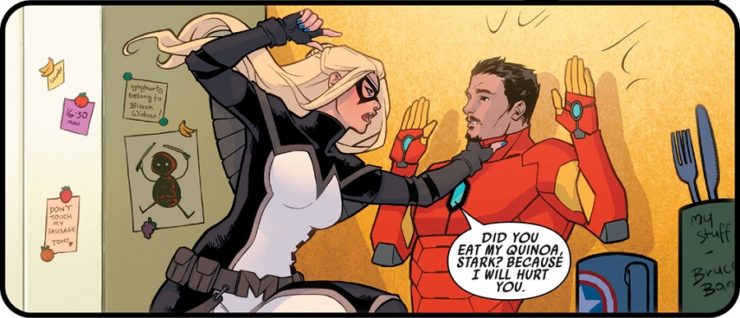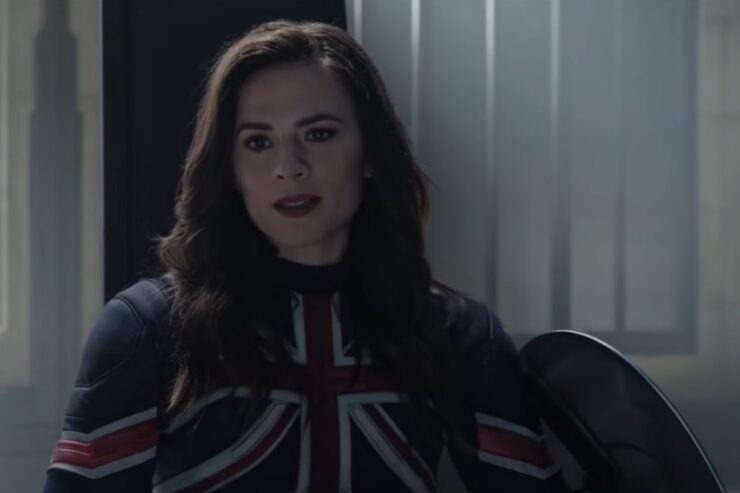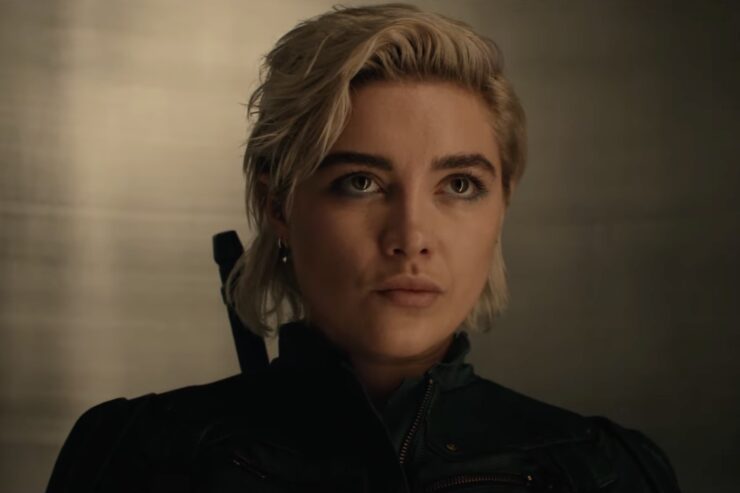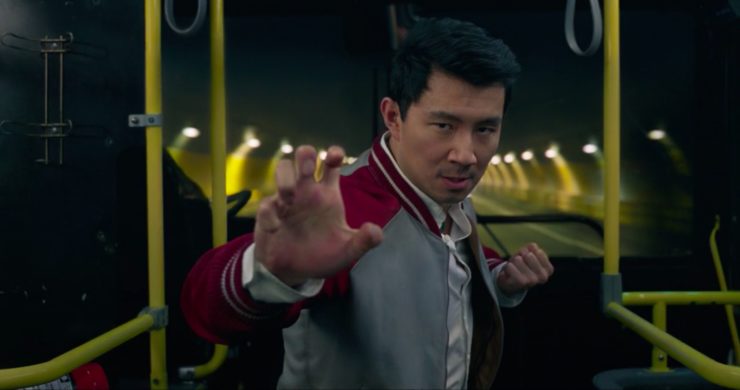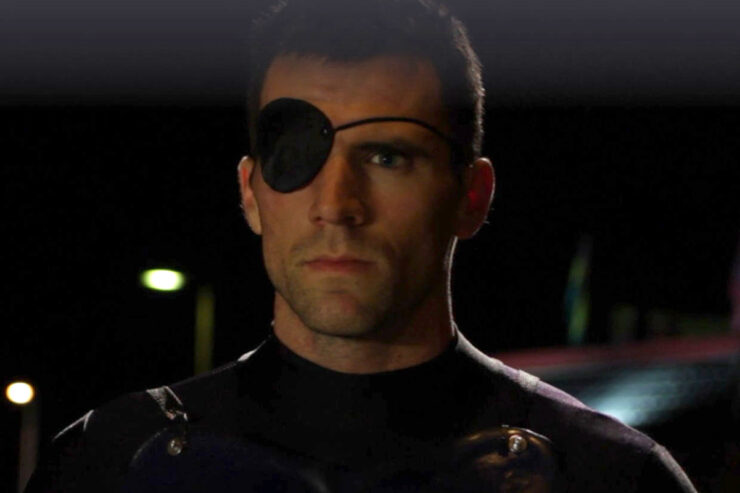Pop culture is littered with stories about powerful women standing aside so weaker men can act out fits of dominance. That reductionism is one of the MCU’s biggest faults right now. Wasp trains Scott Lang to be Ant-Man despite her already being the most qualified person on the team. Black Widow’s detailed emotional arc is replaced with baby mania. Christine Palmer and Jane Foster may be brilliant doctors, but that’s secondary to their role as superhero girlfriends. At this rate, I’m half convinced Carol Danvers will be introduced not as a badass Air Force pilot but as Rhodey’s new girlfriend.
Chelsea Cain and Kate Niemczyk’s Mockingbird was a badly needed antidote to that noise. Sadly, Marvel made the inane decision to cancel it before it found its footing, and the comics world is all the worse for it. And to top it all off, trolls drove Cain off social media all for having the audacity to be a woman on the internet. For fans, we’re in the awkward position of being in the midst of a great feminist revival in comics while also dealing with haters who loathe any change that lessens their own sense of self-importance. Regardless of how you felt about Mockingbird as a series, its demise and the loss of Cain should have us all up in arms about the state of our beloved industry.
Origin Story
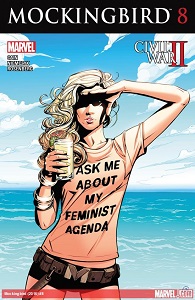 Dr. Barbara “Bobbi” Morse first appeared in Astonishing Tales #6 in 1971, created by writer Len Wein and artist Neal Adams. She was engaged to Dr. Paul Allen who took her to see Ka-Zar in the Savage Land. Paul is revealed to be an A.I.M. double agent while Bobbi has ties to S.H.I.E.L.D. Retcons then move her and Ka-Zar to partners living in New York City and after playing second fiddle she’s eventually dumped for Shanna the She-Devil. She takes the moniker Huntress but quickly swaps for Mockingbird and is then paired off with Hawkeye. Their marriage is short lived, however, as she gets sucked into the Old West and is (possibly) brainwashed and raped by Phantom Rider. After a stint with the West Coast Avengers and the Great Lakes Avengers, Clint divorces her for letting Phantom Rider plummet to his death. Bobbi dies in an attempt to save Clint from Mephisto.
Dr. Barbara “Bobbi” Morse first appeared in Astonishing Tales #6 in 1971, created by writer Len Wein and artist Neal Adams. She was engaged to Dr. Paul Allen who took her to see Ka-Zar in the Savage Land. Paul is revealed to be an A.I.M. double agent while Bobbi has ties to S.H.I.E.L.D. Retcons then move her and Ka-Zar to partners living in New York City and after playing second fiddle she’s eventually dumped for Shanna the She-Devil. She takes the moniker Huntress but quickly swaps for Mockingbird and is then paired off with Hawkeye. Their marriage is short lived, however, as she gets sucked into the Old West and is (possibly) brainwashed and raped by Phantom Rider. After a stint with the West Coast Avengers and the Great Lakes Avengers, Clint divorces her for letting Phantom Rider plummet to his death. Bobbi dies in an attempt to save Clint from Mephisto.
While in Hell she gets Patsy Walker, aka Hellcat, resurrected. Shenanigans lead to her body being discovered in a Skrull ship and she’s brought back to life. Bobbi and Clint are on-again-off-again teammates with the New Avengers and the Secret Avengers. After nearly dying, she’s injected with super soldier serum and the Infinity Formula, which is where her solo series picks up. The chemicals aren’t mixing well with a virus she’s infected with and it gives her glowing hands and psychic powers.
Mockingbird was written by Chelsea Cain, with artist Kate Niemczyk, colorist Rachelle Rosenberg, and letterer Joe Caramagna. Ibrahim Moustafa was the artist for #5, and Sean Parsons inker for #4 and #6-7. Of the 8 issues released, the first 5 and Mockingbird: S.H.I.E.L.D 50th Anniversary #1 (featuring artist Joëlle Jones) are compiled in the recently released volume 1 while the final three are Civil War II tie-ins. The final issue, #8, was released October 19, 2016.
To Pull or Not To Pull
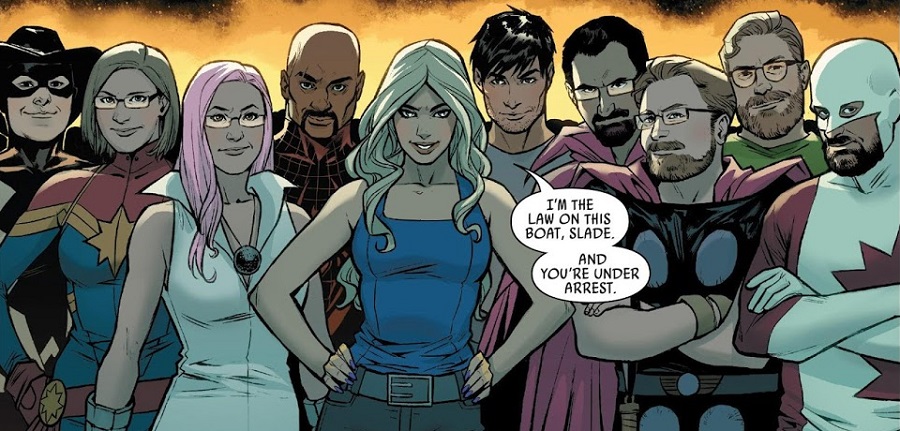
Of the two abbreviated stories Cain got to tell—Mockingbird’s magic virus and search to clear Clint’s name—the virus had more room to grow long term, but the Civil War II tie-in was more off-the-wall fun and really hammered home Bobbi and Cain’s feminist agenda. In the former, Mockingbird spends half her time in the S.H.I.E.L.D. Medical Clinic (along with Tony Stark reading the pamphlet “Gonorrhea? Don’t Panic!”, a perpetually injured Hercules, and chicken-pox infected Miles Morales) and the other half being a superhero/spy. She rescues her current friend-with-benefits not-boyfriend Lance Hunter from a sinister BDSM group, rescues Clint Barton from vivisection by international science terrorists, and intercedes on behalf of a newly be-powered tween girl, all whilst her powers grow stronger.
Lincoln Slade, the Phantom Rider, turns up in the Civil War II tie-ins as Bobbi’s stalker and Cain does some canon retconning. Not everyone was happy with the shift in her relationship with Slade, but Cain centers the reason for the change on Bobbi’s perspective rather than Clint’s, so it worked for me. Bobbi also gives a firm kick in the ass to sexism, misogyny, and the patriarchy. Cain never loses sight of the messy nature of Bobbi’s love of and divorce from Clint Barton. Where many writers would turn her into a weepy ex-wife still desperately in love with the man who killed the Hulk, Cain acknowledges the importance of that relationship without letting it consume Bobbi’s personality or motivations.
Cain managed to take a second string character and breathe new life into her. Her Bobbi is a fearsome thing to behold, a modern woman who doesn’t let anyone else define herself or her place in the world. She’s complex and complicated and probably too smart for her own good and she’s self-aware enough to not care all that much. She knows who she is, who she wants to be, and who she refuses to be. If anyone tried to label her as a Strong Female Character she’d say something pithy and punch them in the face.
Niemczyk’s art is a delight from start to finish. Some artists create the definitive versions of a character, the kind of illustration that so connects with you that you’ll always have that image in your head—for me it’s David Aja’s Hawkeye, Annie Wu’s Kate Bishop, and Jamie McKelvie’s Wiccan and Hulkling—and Niemczyk’s Mockingbird is right up there. Like Brittney Williams on Hellcat, Niemczyk fills the background with diverse characters to make Bobbi’s world feel a little more like ours. I can’t wait to see where she goes from here. If Marvel were smart, they’d offer contracts to Cain and Niemczyk immediately. The art done by Moustafa and Jones is fab as well, offering different takes yet remaining true to the character. Joe Caramagna has his work cut out for him with the detail work on all the background jokes, but as per usual he knocks it out of the park. Rosenberg’s bold, bright colors add to the light, playful tone.
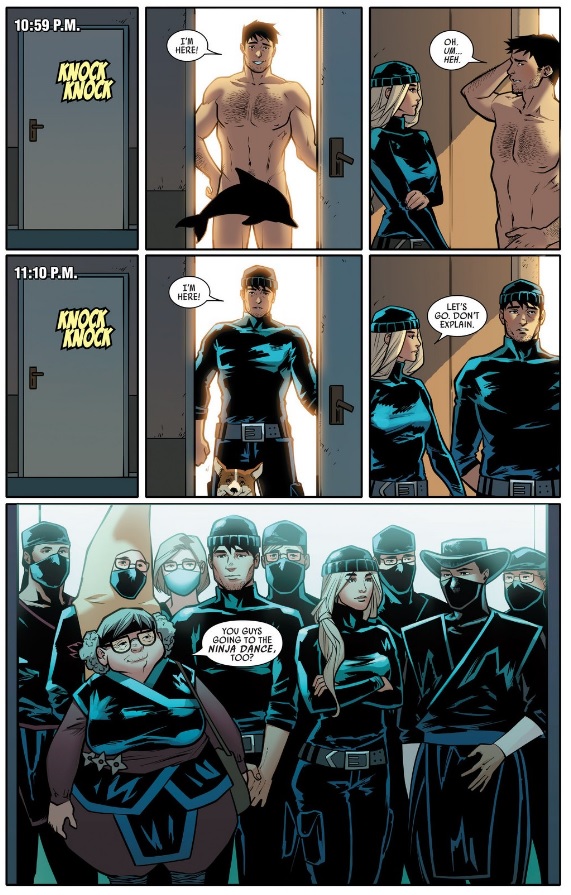
What Mockingbird does best, though, is normalize intersectional feminism by rejecting the tradition that straight white man is the default setting. All the authority figures, and most of the characters of consequence are women and/or people of color. Men aren’t subdued or devalued, but it is a nice contradiction to the assumption that men are always in charge. Again, it’s not anti-man or anti-white, it’s just leveling out the playing field.
Cain’s Bobbi never doubts her authority, and neither does anyone else, male or female. She also never doubts her intelligence, strength, or sexuality. As much as I love stories that directly call out bigotry, it’s also nice to have a story that addresses it by showing a world where bigotry is abnormal rather than standard operating procedure. Bobbi is a badass but no one would dare call her “one of the boys.” She’s sexually active but never slut shamed. She isn’t the perfect woman or even the woman she dreamed of being as a child, but she likes who she is and has the self-confidence to stand up to those who would harm her. I think all women could use a little Bobbi Morse support right about now.
Pushes for diversity and feminism have brought back into the fold a lot of minority and women fans, but we’re burned for our interest more often than not. On the lucky chance we get a series that isn’t cut down before its prime, the publishers seem to go out of their way to hold onto the old guard. For every Kamala Khan there are artists putting female superheroes in brokeback poses and drawing upskirt shots. For every Midnighter there’s “The Killing Joke.” For every title like Mockingbird that’s helmed by a racially, sexually, and gender diverse team, there’s two white dudes running Ironheart.
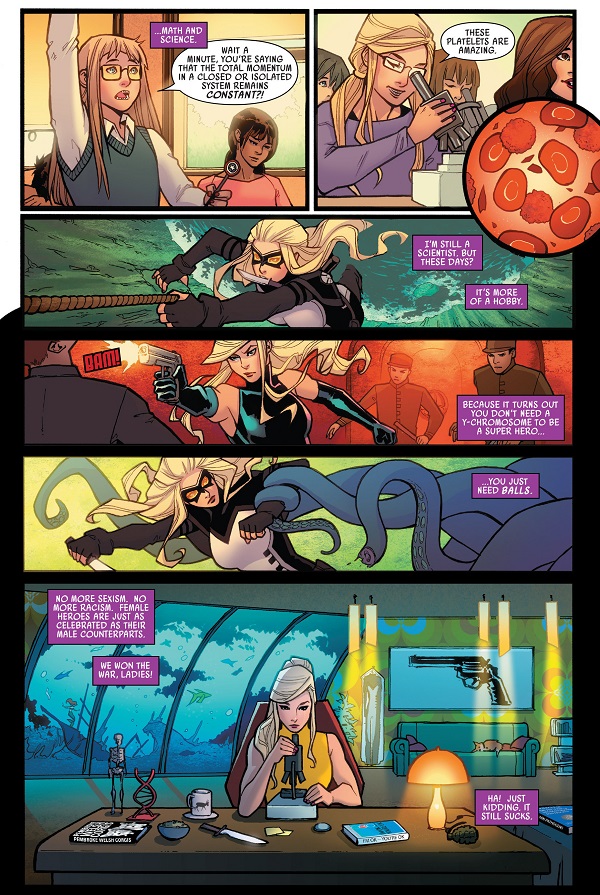
I’m sure Marvel’s excuse for cancelling was that it wasn’t a big seller, but the company didn’t even try to change that. While it was never a cash machine, Mockingbird routinely sold more issues than The Unbeatable Squirrel Girl and Patsy Walker A.K.A. Hellcat!, both of which are still (thankfully) being published. Was no one talking about it because no one was reading it, or was no one reading it because no one was talking about it? This is anecdotal, but I don’t know a single Marvel reader that didn’t drastically cut consumption during Civil War II (if they hadn’t already during Secret Wars), myself included. Why get invested in a new series if there’s a high chance that within the year it’ll be cancelled, crossover-ed, or renumbered in the middle of a storyline? Events, crossovers, and reboots may reenergize longtime fans, but they’re pushing out new and casual readers faster than they can lure them in.
More importantly, the responsibility for keeping diverse comics afloat can’t rest solely on minority readers. Longtime fans need to be more willing to try titles outside their bubble. Every time a diverse title is cancelled, a mass of (usually male) fans come out of the woodwork to blame minorities and women for not buying it. Liberal-minded fans often couple that shaming with a “Well, I wasn’t reading it because it wasn’t written for me.” Well, you know what? Deadpool wasn’t written for me either, but I still liked Fabian Nicieza’s Cable & Deadpool. Hell, if I only read comics that were “meant for me” I’d be stuck with only a handful of titles.
Mockingbird was feminist, and it was also funny as hell, quirky as all get out, and action-packed, and too many dudes gave it a pass simply because Bobbi Morse was the lead and women ran the show. I love seeing young women reading Ms. Marvel, Unbeatable Squirrel Girl, and Hellcat, but where are the men? Why are our allies praising the existence of female-centric titles but not financially supporting them? Feminism only works when everyone is on board. It can’t be only women holding up signs and asking to be taken seriously. Having a female lead doesn’t make the title a “girl book” anymore than having a male lead makes it a “boy book.” Inclusive and diverse stories aren’t meant for the traditionally underrepresented only, even when that is a large part of their target audience. We are all fans of comics, but we aren’t all behaving like it.
Mockingbird was a comic by women and about women, but it’s for everyone. Cain and Niemczyk weren’t preaching to the choir, and it’s a shame so many people assumed they were. It never got the attention it deserved from the public or the support it needed from Marvel, and now it’s gone and only the trolls are left.
Alex Brown is a teen librarian, writer, geeknerdloserweirdo, and all-around pop culture obsessive who watches entirely too much TV. Keep up with her every move on Twitter and Instagram, or get lost in the rabbit warren of ships and fandoms on her Tumblr.










